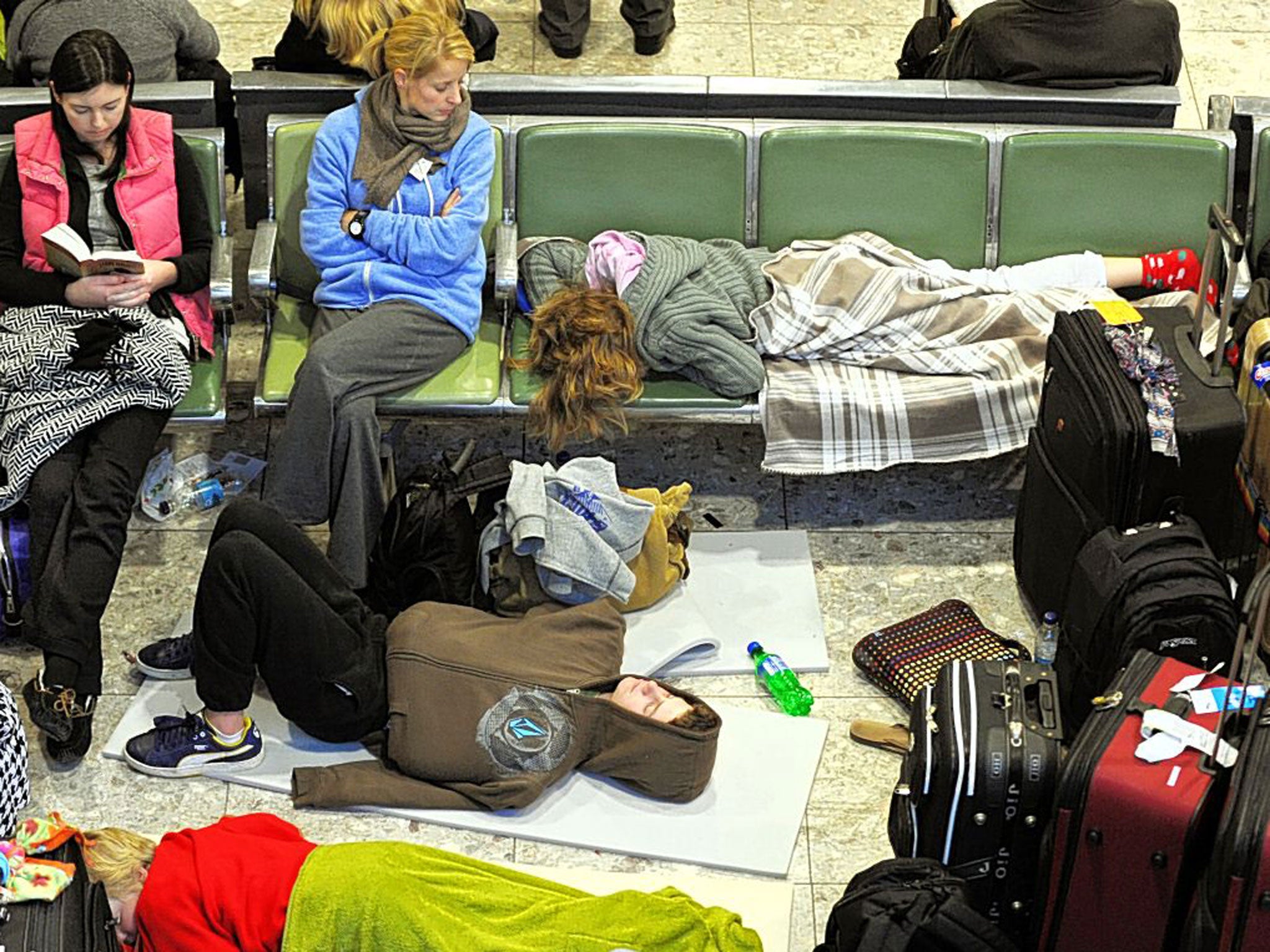Airlines face new claims for late flights
A judgment on one heavily delayed journey may allow thousands to seek compensation, says Simon Calder

Your flight arrives three hours late – inconvenient, of course, but potentially lucrative. Under the European rules on delayed and cancelled flights, you could be entitled to hundreds of pounds in compensation. A short hop qualifies for €250, a flight between 1,500km and 3,500km earns €400, and a longer flight €600. In many cases, the compensation is more than the fare paid for the flight.
Many in the aviation industry regard the levels of compensation stipulated by "EC261" as disproportionate, and argue that the effect is to push up fares for everyone. But until Brussels gets around to rewriting the legislation, it remains the law. Assuming the passenger and the airline are both agreed on the duration of the delay, the only defence open to the airline is that "extraordinary circumstances" caused the delay.
What does the term"extraordinary circumstances" mean? That is the thorny question that dozens of airlines and thousands of holidaymakers have argued over since the European Court of Justice ruled a year ago that a long delay earned the same right to compensation as a cancellation.
The ruling triggered a surge of cases as passengers who suffered a long delay on a flight several years ago submitted claims for compensation. Some were quietly met without fuss. Anecdotally, it appears that British Airways has been settling valid claims amicably. But the volume of cases reaching The Independent Traveller suggests that many airlines are resisting claims, using the defence of "extraordinary circumstances".
Until the spring, the standard route for any case in dispute was for the claimant to approach the Civil Aviation Authority. The CAA would contact the airline, establish the cause of the delay and reach a conclusion about whether compensation was justified. But a backlog of cases quickly built up. The CAA switched tactics, and now refers complainants to a set of guidelines drafted by the "National Enforcement Bodies"; you can read them at bit.ly/ExtraCircs. The guiding principle is that an "extraordinary circumstance" has to meet the three criteria: "unpredictable, unavoidable and external".
Some examples, such as the outbreak of war or the closure of an airport due to snow, clearly meet these criteria. But technical problems, which lie behind many delays, are a far more subjective matter. The guidelines' compilers had a go at defining defences for airlines, such as "premature failure of life-limited parts", but the results have been messy – as indicated by the health warning that "this document does not represent a binding opinion on the European Commission".
Some airlines have cited the guidelines when rejecting claims, but pro-consumer lawyers say a judgement this week confirms that air passengers are entitled to compensation if they are delayed due to technical defect.
Ronald Huzar had claimed against Jet2 after a 27-hour delay on a flight from Malaga to Manchester in October 2011. Initially, his claim for compensation was turned down by a district judge. Other passengers on the same flight had the same experience. But after a hearing earlier this month at Manchester County Court, His Honour Judge Platts ruled that the issue did not turn on whether the technical problem was expected or unexpected. Rather, the judge said, airlines have a duty to resolve technical issues. He said that the resolution of those issues is firmly in the control of the airline – and that technical faults cannot count as "extraordinary circumstances".
"A senior judge has recognised that the purpose of the regulation is to strengthen the rights of passengers and afford them a high level of protection when travelling by air," said Coby Benson, Technical Legal Manager of Bott & Co's Aviation Team. "This judgment has provided much needed clarity to this complicated area of law."
But Jet2 told The Independent Traveller: "What this case demonstrates once again is that the current EU legislation on passengers' rights is continuing to cause real confusion for travellers and for airlines. The judge himself said this wasn't a straightforward decision and that there are no easy answers on issues like these.
"We regret this ambiguity. That's why we are supporting the on-going review of the legislation to make the rules fairer, clearer and simpler to apply."
Meanwhile, Britain's biggest holiday company, Thomson, is rejecting claims dating back more than two years. The firm asserts that "All claims to do with 'international carriage by air' are subject to the framework of the Montreal Convention which provides that claims need to be brought within two years." But in July a district judge at Cambridge County Court ruled that the normal statute of limitations – six years in England and Wales – applied. Thomson is appealing the decision. The case is expected to be heard in May.
Subscribe to Independent Premium to bookmark this article
Want to bookmark your favourite articles and stories to read or reference later? Start your Independent Premium subscription today.

Join our commenting forum
Join thought-provoking conversations, follow other Independent readers and see their replies